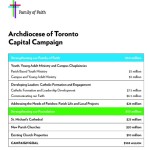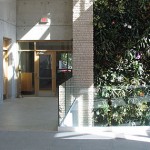Paul the Apostle had a deep and personal relationship with Jesus. Paul was a good Jew. He tells us that he was circumcised on the eighth day, he was a member of the people of Israel, he belonged to the tribe of Benjamin, he was a strict Pharisee, with great zeal he persecuted the early Christians and as to righteousness under the law he was blameless.
When Jesus came into his life on the road to Damascus everything changed. He broke with his past, it was of no value to him. His treasure now was that he was gifted with a surpassing knowledge of Christ Jesus his Lord. He no longer believed that oneness with God came from circumcision and a strict keeping of the Mosaic law – oneness with God came from faith in Jesus Christ as one’s lord and savior. Jesus Christ, the crucified and risen. Probably this cost Paul his family and friends, he lost his standing in the Jewish community and made him many enemies in that community, enemies who would hound him til his death. Paul couldn’t care less, for him all these things were rubbish. What meant most to Paul was to know Jesus Christ and the power of his resurrection. He knew in the very depth of his being that Jesus Christ made Paul of Tarsus his own. By God’s gift Paul was what he was and that gift was not given in vain.
Paul wanted those to whom he preached to have the same relationship with Christ that he enjoyed. He encouraged his listeners to ‘put on Christ’ and ‘grow to full maturity in Christ.’ His wish was that all those he brought to Christ could say of themselves what he said of himself, ‘I live now, not I but Christ lives in me and the life I live, I live it trusting in the Son of God who loved me and gave his life for me.’
We can say this of ourselves when by God’s grace we try to be more Christ-like in our daily living of life. We put on Christ, we grow in Christ when we try to avoid racism or sexism or discrimination in our ways of relating with other men and women. Accepting and respecting them as Christ accepts and respects us. We put on Christ when we reach out, with a healing touch, to mend broken relationships in our families. We put on Christ when we refuse to judge people’s ways of living their lives, for we were told ‘judge not and you will not be judged.’ We put on Christ when, by our own good example, we bring others to Christ.
Paul knew he was not perfect. He may have been a hard person to get along with.. He put into words what we all experience in our lives, ‘The good that I would that I do not and the evil that I would not do that I do.’ But his weaknesses and faults never discouraged him, as ours should not discourage us. As we hear in our second reading,’ one thing I do, forgetting what is behind I strive on to what is ahead. I press on towards the goal for the prize of the heavenly call of God in Christ Jesus. Let those of us who are mature be of the same mind – may we hold fast to what we have obtained, our own personal relationship with Christ, a relationship that is deepened by the authenticity of our relationships with the men and women who are part of our lives.
This is the invitation the call God our Father offers each one of us when he said, ’this is my son, listen to him.’ We are invited to put on Christ by living and loving and healing and forgiving as he did.
As we continue to celebrate this Eucharist we can pray for ourselves and for each other and every day we live our ordinary lives in such a way that we can say, ‘I live now not I but Christ lives in me and the life I life I live trusting in the Son of God who loved me and gave his life for me.
 Founded by St. Paul of the Cross, every Passionist takes a special vow to spend his or her energies in promoting remembrance of the sufferings of Jesus, the memory of the Cross, and reflection of the meaning of the Cross for the world.
Founded by St. Paul of the Cross, every Passionist takes a special vow to spend his or her energies in promoting remembrance of the sufferings of Jesus, the memory of the Cross, and reflection of the meaning of the Cross for the world.




